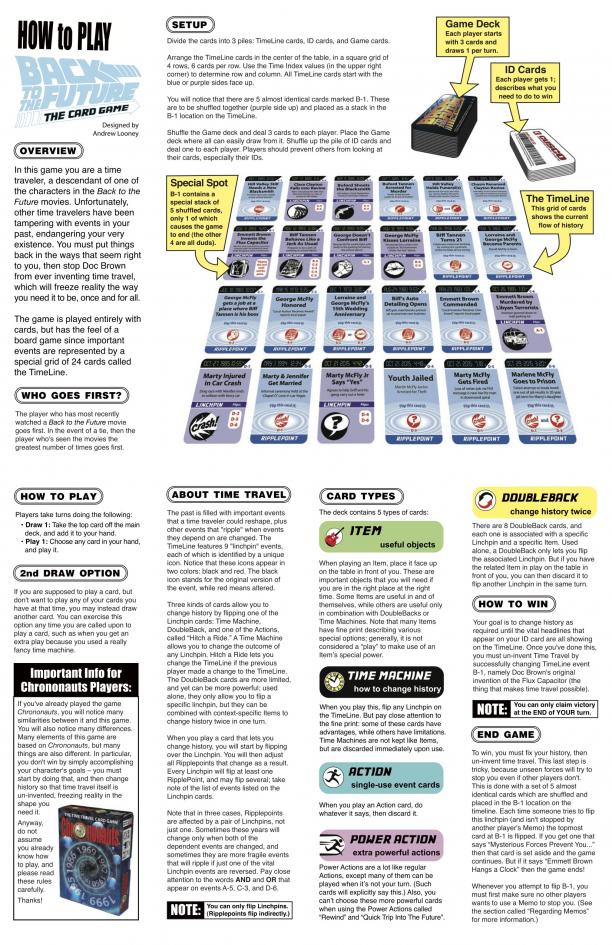The rules of a game are one of the fundamental structures of all games, alongside goals, participants, challenges, and play. Without rules, a game ceases to be a game (and instead turns into unstructured play).
Rules define the boundaries, conditions, and player-focused regulations of a game. Most game rules are mandatory and not permitted to be bypassed or broken. Breaking a rule is considered cheating which is almost universally frowned upon. However, rules can have exceptions for players to take advantage of. Exceptions act as a loop-hole or temporary debarment from an otherwise compulsory binding.
Elements of Rules

Rules can be broken down into edicts that define the following broad categories:
- Components: The paraphernalia of the game. Can include (but not limited to) dice, rulebooks, balls, character record sheets, chits, game mats, protective sports equipment, game boards, controllers, cards, tokens/counters, and so on.
- Time Progression: How time/turns elapse in order. Some games have phases, turns, rounds, steps, and/or actions. The order in which player actions and game-events unfold determines the time progression method (e.g. real-time, fixed-order, random-order, time tracks, etc).
- Play-Space: The physical space and boundaries that the game takes place in. Can include a field or court (for sports), game board, table, card deck, virtual space, and so on.
- Actions: What player-actions and in-game events are allowed, when, and in what order (also known as Initialization). This defines player powers, progression, choices, and so forth.
- Resolution: How events, game conditions, and player-actions are resolved. Can include stat checks, timers, voting, skill performance, and so on.
- Player Responsibilities: Mandatory requirements or obligations that the player(s) must follow or adhere to. See participants and team structures which define how many players are allowed to play, and the formal relationship that they have with one another in regards to goal structures and end-game conditions (victory or defeat).
- Resources, Economies & Auctions: What resources, such as avatars, units, in-game currencies, structures, etc. are allowed within the game, as well as how those resources are governed through economies or traded in auctions. Resources can include almost any game element from points, attributes, locations, and so on. Economies can include (but not limited to) trading, markets, ownership, producing/consuming, and so on.
- Goals: See goals, goal structures, and game end conditions.
- Play: The possibility-space that a player, or team of players, have to execute plans, pursue goals, set up strategies, and so on. See play.
- Information: What information is known, what is uncertain, who knows what, how and when that information is revealed (if at all).
- Boundaries: The limits of what is allowed within the game. This can include restrictions on the physical play-space, to player actions, to the minimum and maximum number of resources, turns, structures, etc. These act as the hard limits to what players, resources, or the game itself can do.
- Exceptions: Exclusions to the previously-defined rules (or boundaries). Exclusions are often (but not always) temporary and fleeting. Exceptions may be universal or apply only to a specific group of players, units, areas, actions, resources, etc. Exceptions to exceptions can exist, but usually increase the complexity cost of playing the game.

